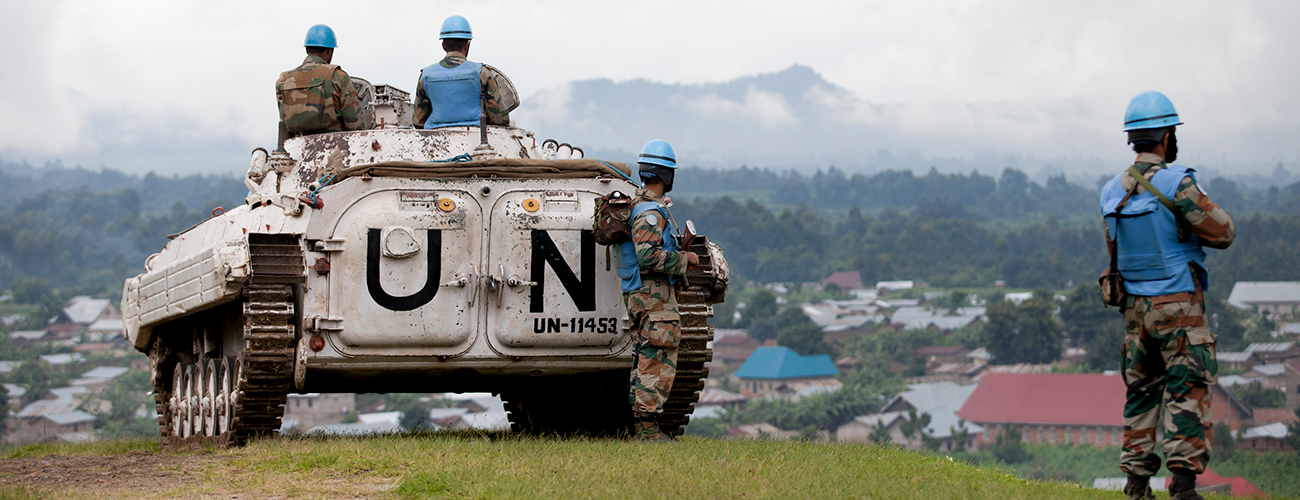Indian peacekeepers with armored vehicle watch over Bunagana and Ruyoni hill, a stronghold of M23 fighters in Bunagana, North Kivu, Democratic Republic of the Congo, May 23, 2012. (UN Photo/Sylvain Liechti)
Independent reviews are a relatively new but increasingly popular tool. Since the practice was established in 2017, there have been nineteen independent reviews of UN peace operations. These reviews have been intended to rigorously assess the strategic orientation of peace operations while providing more political credibility than UN-led review processes. But given the diverse processes and incentives that shape them, these exercises are both analytically complex and highly political. As independent reviews have gained prominence over the past five years, reflecting on the experiences of previous reviews is necessary for improving their quality, impact, and sustainability moving forward.
This paper provides a comparative analysis of the nineteen independent reviews of UN peace operations conducted between 2017 and 2021 by considering emerging trends, best practices, and lessons observed. It begins by juxtaposing the emergence of independent reviews with an increasingly fractured geopolitical landscape for UN peace operations and introducing these reviews’ distinguishing features and objectives. It then analyzes how independent reviews have unfolded in practice across seven different dimensions. The paper concludes by presenting findings about the practice and future of independent reviews and developing criteria to distinguish between UN-led and independent reviews. It also offers recommendations to the UN system, member states, and independent review teams to improve the practice:
- The UN system should codify independent reviews within formal UN policy, consolidate best practices, clarify roles and expectations of UN staff seconded to review teams, prioritize diversity in the composition of review teams, improve reporting on independent reviews, and establish a dedicated funding stream for independent reviews.
- Independent review teams should emphasize their transparency and independence, build internal and external constituencies, systematize their use of diverse research methods and approaches, and embrace the support provided by “red teams.”
- Member states should treat independent reviews as exceptional instead of standard, debrief team leaders following the submission of an independent review, request a formal briefing on strategic reviews and assessments, strengthen reporting requirements on the implementation of review recommendations, and provide ample time for conducting independent reviews.








